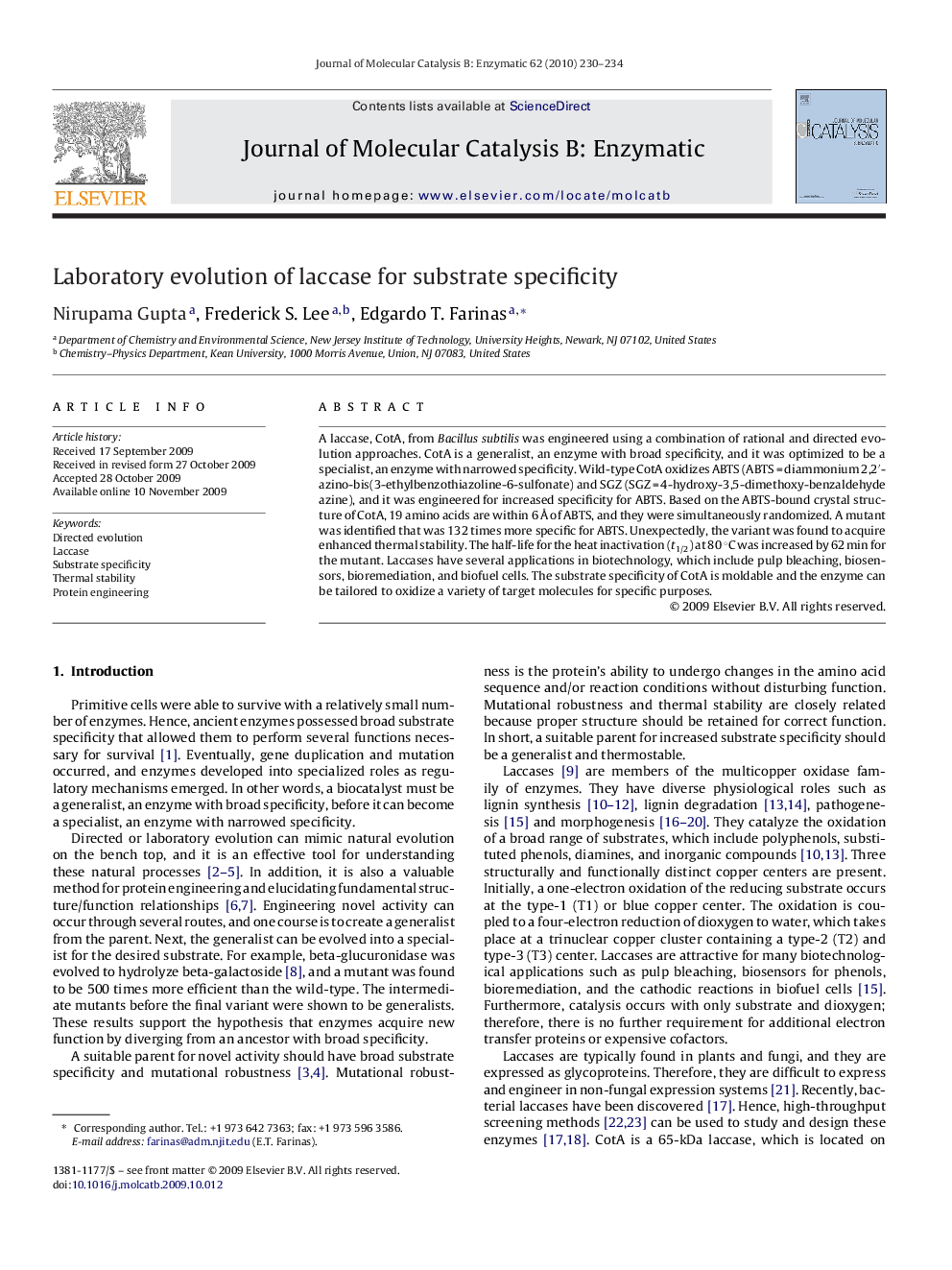| Article ID | Journal | Published Year | Pages | File Type |
|---|---|---|---|---|
| 70520 | Journal of Molecular Catalysis B: Enzymatic | 2010 | 5 Pages |
A laccase, CotA, from Bacillus subtilis was engineered using a combination of rational and directed evolution approaches. CotA is a generalist, an enzyme with broad specificity, and it was optimized to be a specialist, an enzyme with narrowed specificity. Wild-type CotA oxidizes ABTS (ABTS = diammonium 2,2′-azino-bis(3-ethylbenzothiazoline-6-sulfonate) and SGZ (SGZ = 4-hydroxy-3,5-dimethoxy-benzaldehyde azine), and it was engineered for increased specificity for ABTS. Based on the ABTS-bound crystal structure of CotA, 19 amino acids are within 6 Å of ABTS, and they were simultaneously randomized. A mutant was identified that was 132 times more specific for ABTS. Unexpectedly, the variant was found to acquire enhanced thermal stability. The half-life for the heat inactivation (t1/2) at 80 °C was increased by 62 min for the mutant. Laccases have several applications in biotechnology, which include pulp bleaching, biosensors, bioremediation, and biofuel cells. The substrate specificity of CotA is moldable and the enzyme can be tailored to oxidize a variety of target molecules for specific purposes.
